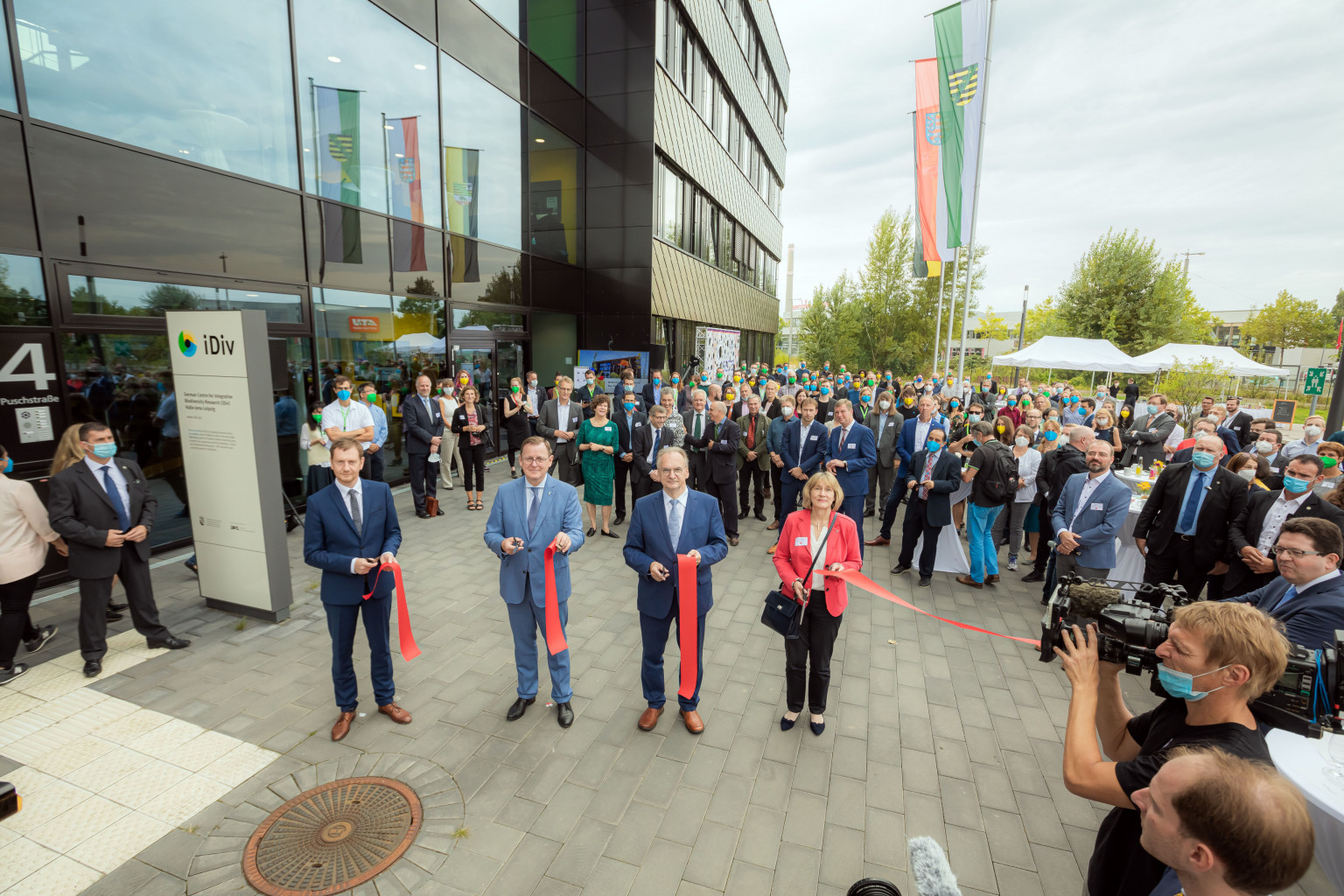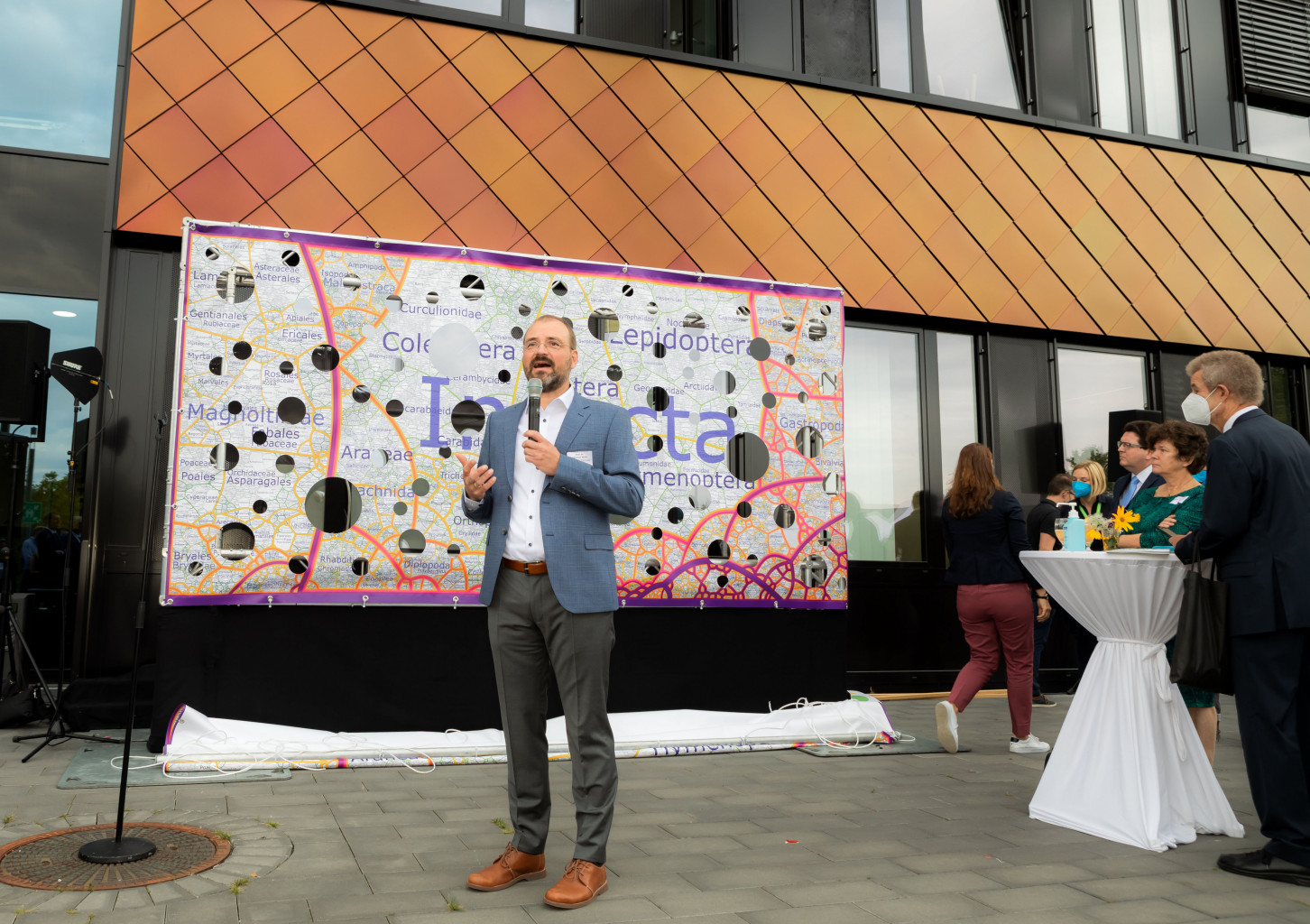Thessaloniki gets ready for its metro launch in November
The underground rapid transit lines have been under construction for almost two decades due to various project delays
 TheMayor.EU logo
TheMayor.EU logo The project is the result of cooperation between Saxony, Saxony-Anhalt and Thuringia and it highlights the strength of cross-regional cooperation
Today, the Minister-Presidents of Saxony, Saxony-Anhalt and Thuringia inaugurated the Deutsches Zentrum für integrative Biodiversitätsforschung (German Centre for Integrative Biodiversity Research - iDiv) in Leipzig. The centre began operating in 2020 and since then 300 researchers have started working in the new state-of-the-art laboratories.
The Centre for Biodiversity aims to bring together experts in scientific collaboration from Central Germany to help fuel the European Green Deal policy with the right data to make informed decisions.
The Institute for Biodiversity in Leipzig brings several institutions together: The Friedrich Schiller University Jena, the Martin Luther University Halle-Wittenberg and the University of Leipzig. At the same time, the centre is part of the German Research Foundation (Deutsche Forschungsgemeinschaft) and is managed through cooperation with the Helmholtz Centre for Environmental Research.
 L-R: Minister-President of Saxony Michael Kretschmer,
L-R: Minister-President of Saxony Michael Kretschmer,
Minister-President of Saxony-Anhalt Reiner Haseloff
and Minister-President of Thuringia Bodo Ramelow,
Source: iDiv
The new centre in Leipzig is at the heart of Saxony, Saxony-Anhalt and Thuringia’s joint effort to combat the problem of rapidly decreasing biodiversity. The project cost around 34 million and took over two years to finish, but now the iDiv building has state-of-the-art laboratories, offices and seminar rooms and, above all, a spacious, multi-storey foyer as an attractive meeting point.
During the inauguration ceremony, iDiv spokesman Christian Wirth underlined the importance of scientific exchange in the sector of Biodiversity. He presented a huge “map of life”, showing the diversity of all known living beings. The map had large holes, representing endangered species and habitats.
 Prof. Dr Christian Wirth and the map of life with biodiversity holes,
Prof. Dr Christian Wirth and the map of life with biodiversity holes,
Source: iDiv
Prof. Dr Christian Wirth was quoted in a press release, saying: “The coming years and decades will determine our quality of life and that of future generations. Politics and research are responsible, on the one hand, to offer solutions immediately and, on the other hand, to develop sustainable answers with innovative basic research on how humanity can do business with biodiversity in the future - and not against it."
Minister-President Michael Kretschmer pointed out the research centre as a positive cross border exchange example. He said: “The German Centre for Integrative Biodiversity Research is an important building block in the transnational research landscape, which clearly shows which synergies can be released and what can be achieved in important research areas when universities, research institutions and politics work together across regional borders."
The global biodiversity crisis is one of the major problems of our time, however, it currently plays a very small role in public debate and policy. This is because it is overshadowed by the climate crisis, but it is no less important, as a damaged biosphere could make a climate recovery very hard.
According to the World Biodiversity Council, around one-eighth of all animal and plant species are threatened with extinction - with consequences for the functioning of ecosystems. Overexploitation, pollution and climate change endanger habitats, species and genes; they endanger the basis for the existential things we need to live.

The underground rapid transit lines have been under construction for almost two decades due to various project delays

Now you can get your wine in Talence by paying directly in Bitcoin

That’s because the state has to spend money on updating the railway infrastructure rather than subsidizing the cost of the popular pass

Rethinking renewable energy sources for the urban landscape

The examples, compiled by Beyond Fossil Fuels, can inform and inspire communities and entrepreneurs that still feel trepidation at the prospect of energy transition

Now you can get your wine in Talence by paying directly in Bitcoin

The 10th European Conference on Sustainable Cities and Towns (ESCT) sets the stage for stronger cooperation between the EU, national and local level to fast track Europe's transition to climate neutrality.

At least, that’s the promise made by the mayor of Paris, Anne Hidalgo

The underground rapid transit lines have been under construction for almost two decades due to various project delays

At least, that’s the promise made by the mayor of Paris, Anne Hidalgo

Hostal de Pinós is located in the geographical centre of the autonomous region

Despite its church-y name, the district has long been known as the hangout spot for the artsy crowds

Urban dwellers across the EU are having a say in making their surroundings friendlier to people and the environment.

Forests in the EU can help green the European construction industry and bolster a continent-wide push for architectural improvements.

Apply by 10 November and do your part for the transformation of European public spaces

An interview with the Mayor of a Polish city that seeks to reinvent itself

An interview with the newly elected ICLEI President and Mayor of Malmö

A conversation with the Mayor of Lisbon about the spirit and dimensions of innovation present in the Portuguese capital














